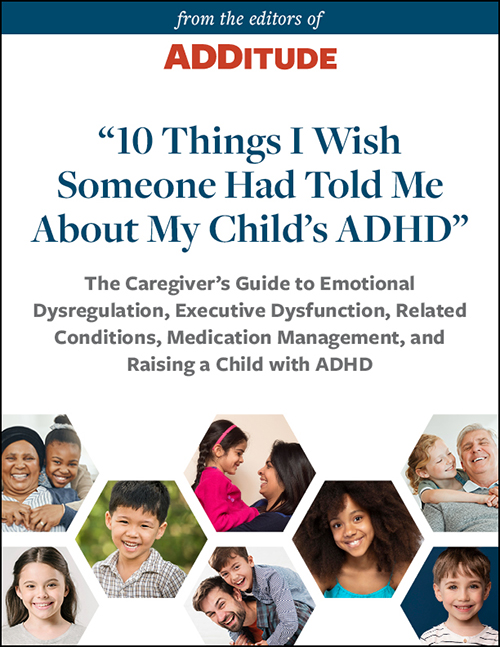How to Trade Your Teen’s Lies for Trust
Poor impulse control can lead teens with ADHD to engage in questionable or risky actions – and then lie about it.
Q: My teen with ADHD habitually lies, and it worries me. How can I stop this behavior?
 Poor impulse control can cause teens with ADHS to make poor choices – and lie about those choices. Lying stems from avoidance, denial, or a desire to skirt punishment.
Poor impulse control can cause teens with ADHS to make poor choices – and lie about those choices. Lying stems from avoidance, denial, or a desire to skirt punishment.
But lying compounds the problem. There’s the lie, and then there’s the original problem that caused the lie.
There is something called earned trust. Through their actions, children and adolescents build on or destroy what has accumulated in a “trust bank account” with their parents. Kids think their trust bank accounts are flush with cash just because they exist. That’s not the case. Trust is earned. When a parent loses trust because a child lied, the child must earn it back, perhaps by complying with agreements or behaviors you both negotiated, for example.
When younger kids with ADHD lie, it doesn’t typically mean they’re trying to deceive you. Usually, kids lie to increase comfort in the present moment. Kids or teens may lie because they feel uncomfortable or ashamed, or in hopes of reducing stress or minimizing conflict.
[Free Download: Your 10 Toughest Discipline Problems — Solved!]
I suggest that you sit down with your child or adolescent and say, “There’s lying going on. How do we want to handle that? Let’s talk about agreements and logical consequences.”
Here’s a critical point to remember as a parent: You can’t ask for honesty and then punish it. If you say, “I want you to call me at any hour, wherever you are, and I’ll pick you up,” then you must follow through on this promise without judgement.
The ride home is not the time for lectures or to express your frustration. Refrain from telling them all the things that they’re going to lose; otherwise, they’re not going to confide in or call you again when they’re in a pickle. Instead, wait and gather your thoughts carefully. There’s nothing wrong with making your kids sweat a little bit. Then have the conversation later when everybody is calmer – and more clear-headed.
A positive response to dishonesty includes discussion and understanding; don’t shut things down with anger, guilt, blame, and shaming. When you show up with curiosity and compassion, you offer your child the opportunity to come clean and work with you on collaborative solutions to earn back your trust. This process builds connection and reduces conflict.
Parenting a Habitual Liar: Next Steps
- Read: A Survival Guide for Parents with ADHD: Strategies from Preschool to High School
- Free Download: Questions to Get Your Child Talking
- Watch: “A Parent’s Guide to Trading Defiance for Cooperation”
Sharon Saline, Psy.D., is a clinical psychologist who specializes in working with children, teens, and families living with ADHD and coexisting conditions.






